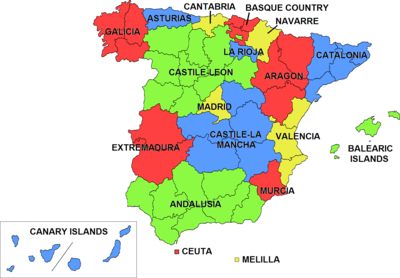Hello everybody!
Today we have had a very unpleasant lesson. There has been a big problem between Ángel and Paqui. They were discussing because Ángel didn't do his homework. Paqui has told us that we have the duty of doing our homework and we can't give excuses for that. We must do it. She has told us that she is not our friend, she's our teacher and we have to behave just as teacher and student. She has become very very angry, today we have probably seen her in a way that we have never seen her. I think all of us should take part in respecting her and the others, because if we don't respect them, therefore we will never respect ourselves.
Afterwards, we have continued with the lesson. Paqui has checked our schemes about the European Union, and she has done it on the blackboard so that we have seen our mistakes and the things which were missing in our schemes.
We have learnt a lot of things about the European Union. It was created in 1957 and little by little, it became bigger, that is, it started to have more and more members. The European Union has provoked a lot of problems between its members because there were economic differences between them, and the decisions they made, were so far from the interests of the members.
But it has caused positive impacts between the members, as well: it has improved their standards of living, it is a world economic power and they have a free market with a common currency.
We have learnt some new words:
- Bailout: rescate financiero.
- Currency: moneda oficial.
- Bureaucracy: burocracia.
- Noise pollution: contaminación acústica.
- Property speculation: especulación inmobiliaria.
We have also continued watching the PowerPoint, and it was about the things that the European Union shared and we have seen the photos of some of the presidents and the consilors of the European Union. Paqui has told us that Spain is an important power in the European Union and we are between the 5 most important powers in the European Union.
At the end of the class I have told Paqui that I wanted to write the journal and, for this reason I am writing it. You can tell me if I have forgotten things that we have done today, and I'll include them in the post.
I hope we don't have more lessons as this one, because it is very sad to see these situations.
See you!
























